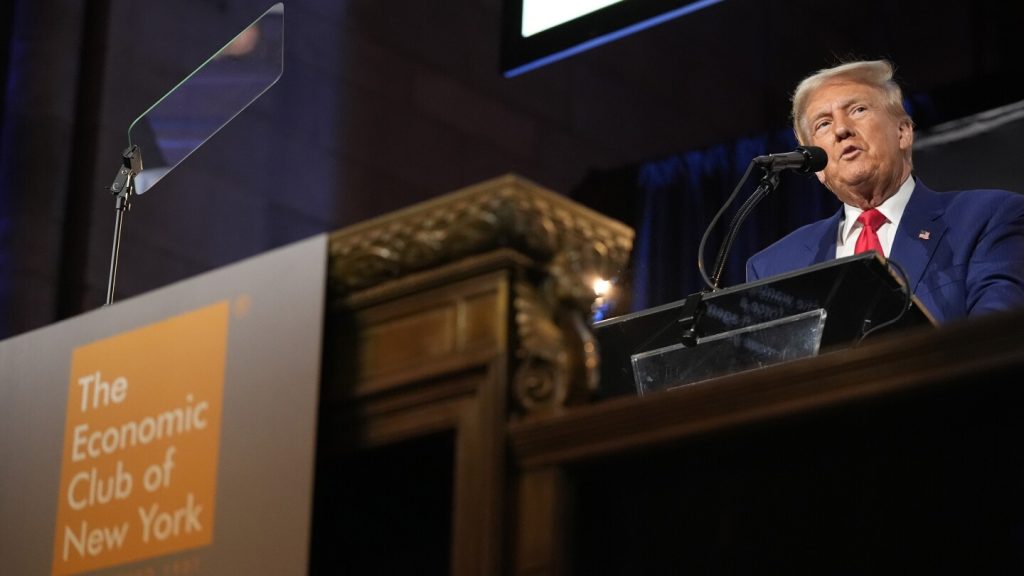Former President Donald Trump recently made comments about the high cost of child care, stating that it would not be very expensive compared to the revenue he would generate from imposing tariffs on foreign goods. However, experts are skeptical that tariffs would raise enough revenue to cover both tax cuts and a large-scale child care program. Democrats have also raised concerns that higher tariffs would ultimately raise costs for families by increasing the prices of consumer goods. Despite Trump’s comments, fixing the child care system may not be as expensive compared to other government expenditures, but the political challenges associated with funding such a program have been evident in past proposals.
The child care industry has been described as a “broken market” by Treasury Secretary Janet Yellen. Labor costs are high due to the need for individualized care for each child, leading to high tuition costs for families. Many argue that child care will only become affordable for American families with a substantial infusion of taxpayer money. Various proposals, including ones from former President Joe Biden and Senator Elizabeth Warren, have aimed to address the issue of affordable child care, but challenges related to funding have hindered their implementation. Biden has since reintroduced child care proposals as part of his budget plan, but it remains uncertain whether they will move forward.
Research has shown that high-quality early education can have a positive impact on a child’s life, leading to higher lifetime earnings and lower incarceration rates. Despite the benefits associated with early education, the high costs of child care continue to be a barrier for many families. Proposals from politicians like Senator Warren have aimed to establish public early learning centers and home-based daycares for low-income families, funded through taxes on millionaires. While there has been bipartisan support for initiatives like expanding tax credits for child and dependent care, larger-scale proposals have struggled to overcome financial hurdles.
During his administration, Trump proposed a $1 billion fund for child care grants to states, contingent on regulatory changes. However, this proposal never came to fruition. Experts and advocates emphasize that investing in child care is crucial, as it can lead to increased workforce participation among parents and caregivers. The Council for a Strong America estimated that the nation was losing billions of dollars in revenue and productivity due to child care issues. While there are various proposals and bipartisan support for certain fixes to the child care system, the challenge lies in finding a sustainable funding solution that can address the high costs associated with providing quality child care for American families.
In conclusion, the issue of affordable child care remains a prominent concern for policymakers and advocates. While politicians have proposed various solutions to address the high cost of child care, challenges related to funding and political feasibility have hindered their implementation. The impact of quality early education on children’s lives underscores the importance of finding sustainable solutions to make child care more accessible and affordable for American families. The ongoing debate around funding mechanisms, such as tax increases on foreign goods or millionaires, highlights the complexity of addressing the child care crisis and the need for bipartisan cooperation to find viable solutions.


